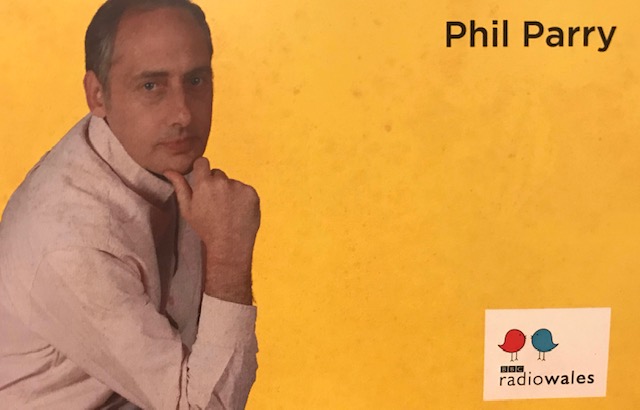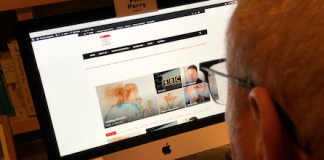- X marks the spot again - 17th February 2026
- Wordy again part three - 16th February 2026
- ‘Lies, damned lies etc…’ - 13th February 2026
 Here our Editor Phil Parry looks at how a political call for ‘transparency’ at the BBC may not extend to giving the truth about other extraordinary events at the corporation in Wales.
Here our Editor Phil Parry looks at how a political call for ‘transparency’ at the BBC may not extend to giving the truth about other extraordinary events at the corporation in Wales.
Earlier he has described how he was helped to break into the South Wales Echo office car when he was a cub reporter, recalled his early career as a journalist, the importance of experience in the job, and making clear that the ‘calls’ to emergency services as well as court cases are central to any media operation.
He has also explored how poorly paid most journalism is when trainee reporters had to live in squalid flats, the vital role of expenses, and about one of his most important stories on the now-scrapped 53 year-old BBC Cymru Wales TV Current Affairs series he presented for 10 years, Week In Week Out (WIWO), which won an award even after it was axed, long after his career really took off.

Phil has explained too how crucial it is actually to speak to people, the virtue of speed as well as accuracy, why knowledge of ‘history’ is vital, how certain material was removed from TV Current Affairs programmes when secret cameras had to be used, and some of those he has interviewed.
He has also disclosed why investigative journalism is needed now more than ever although others have different opinions, and how information from trusted sources is crucial at this time of crisis.
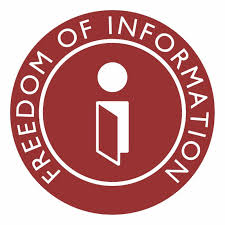 While a former Welsh secretary has introduced a parliamentary bill demanding transparency at the BBC, this is unlikely to extend to telling the public what is going on at the corporation in Wales.
While a former Welsh secretary has introduced a parliamentary bill demanding transparency at the BBC, this is unlikely to extend to telling the public what is going on at the corporation in Wales.
Previous attempts to gain information through the law have failed.
Requests under the Freedom of Information Act (FOIA) have been met with a flat refusal to provide answers, and one angry listener was told in 2010: “We are not… obliged to supply information…”
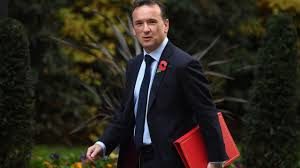
Yet the one time Secretary of State for Wales Alun Cairns is trying his hardest.
He has proclaimed on Twitter: “BBC needs to be more transparent, which is why I introduced my BBC (Transparency) 10 Min Rule Bill…”
Sadly this will only apply to every invoice above £500, but many critics of the organisation would like to see more ‘transparency’ right across the board.
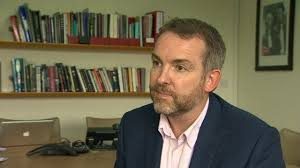
For example the Director of BBC Cymru Wales (BBC CW) Rhodri Talfan Davies has presided over record-breaking low audience figures in radio, his flagship TV news programme committed an awful error when it showed Brighton Pavilion mistaking it for a mosque, one of his most senior executives conducted an alarming affair with one of his presenters even though officials had commissioned a programme she fronted, and he wasn’t “accessible” (a word he used himself) to being interviewed by me despite the fact that I had been at his organisation for 23 years.
Any ‘transparency’ about these episodes, however, has been lacking.
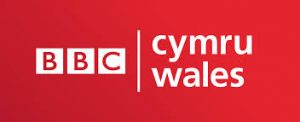
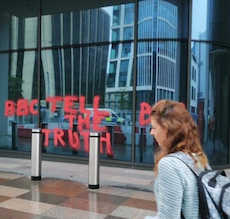
The commissioning skills of his most senior staff have also been open to question, when popular programmes have been axed while another which WAS commissioned, was described as “embarrassingly unfunny”, and the impartiality of his output has been questioned by a prominent politician.
But there was no ‘transparency’ concerning any of these disturbing events for taxpayers, despite the fact that they pay the wages of senior officials like Mr Davies, and criticism has mounted.
His BBC Cymru Radio Wales (RW) service has been accused on Digital Spy (DS) of being “lightweight” and “a shadow of its former self”, with another critical listener saying there is a need to “stop the rot” while a further contributor said the trail for a new programme “sounds horrendous”. RW has returned to the top 20 radio topics with a growing list of condemnatory comments, but stories on The Eye are mentioned approvingly.
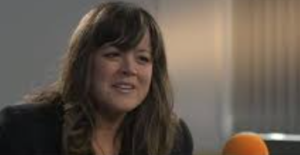
In the past one contributor to this online forum has said that Mr Davies’ ‘Breakfast with Claire Summers‘ programme (which replaced Good Morning Wales [GMW]): “… sounds like a community radio station bloody awful. Woman presenter has a grating voice and is fluffing her lines. Morning news programme should contain news”.
 Other RW listeners who supplied statements to the forum were equally scathing about recent RAJAR listening figures. One said: “I do get the impression that Ulster and Scotland do a good job of being part of their country’s internal conversation. I’m not sure that Radio Wales has the same status.”
Other RW listeners who supplied statements to the forum were equally scathing about recent RAJAR listening figures. One said: “I do get the impression that Ulster and Scotland do a good job of being part of their country’s internal conversation. I’m not sure that Radio Wales has the same status.”
A piece by The Eye was included in a DS comment about RW with the message above the link saying “…the record low listening figures at Radio Wales under it’s (sic) current management (were) amplified this year by criticism from former award winning reporters and presenters”.
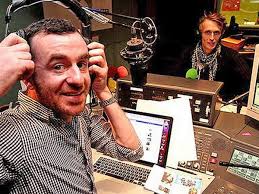
One of the protesters on DS wrote about RW: “The morning news programme has reduced its hours. The content of the morning news is poor, not enough news stories, Radio Four Today it is not”.
It might have been nice to have had more ‘transparency’ about these things.
Another listener complained strongly about RW, saying the station was “littered with presenter led record programmes and chat”, and the complaint was sent initially to the First Minister of Wales (FMW) Mark Drakeford then passed to the Deputy Minister for Culture, Sport and Tourism (DMCST) Dafydd Elis-Thomas. It said: “… The station (RW) has lost 47,000 listeners in the last three months and has reached the point where 95% of the country never tune in. Over £18 million of licence payers money funds BBC Radio Wales for little or no return.”
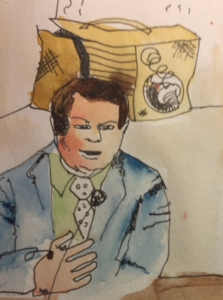
But the Editor of the station he complained about, (Mr Davies’ appointee Colin Paterson), has also made news.
Journalists on The Eye have been alone in showing that he was having an affair with the BBC Cymru Wales Today and RW presenter Lucy Owen, who declared the importance of travelling by bus in a tweet he ‘liked’. For many staff at BBC CW the relationship represented a huge potential conflict of interest because a RW programme had been commissioned hosted by Mrs Owen called ‘Sunday morning with Lucy Owen’, and media executives both inside as well as outside the corporation have told me that they were worried about their partnership’s possible impact on the process. The ‘predictive search results’ in ‘Google’ for Mrs Owen and her husband Rhodri have been, perhaps, prescient. They have said “Lucy Owen Rhodri Owen split”.
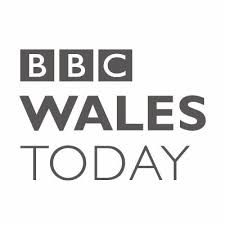
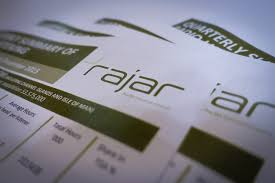
A recent RAJAR report also made grim reading for Mr Davies, coming as it did hard on the heels of other low audience statistics, and this too he could have been more transparent about.
They revealed a slight increase on last year but a drop compared with two years ago, a massive decline on the year before that, and how more than 40,000 listeners had been lost in the previous three months, despite the huge amount of money which had been spent on new schedules.
The figures also showed that the total listening hours were 2,667,000, down from 3,074,000 in September last year, although up from 2,147,000 in December 2018. The listener average per week was 8.2 hours, down from 8.4 hours the summer of last year, but up from 6.8 hours in December 2018, and the market share was just 5.5 per cent, down from 6.0 per cent in September of 2019.
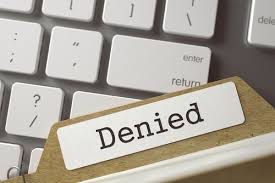
A worried listener asked BBC CW for details about these statistics, posing the question in an FOIA: “What are the listening figures for (the radio programme) Good Morning Wales on BBC Radio Wales?”.
But it was in response to this reasonable request, that the listener was told: “We are not… obliged to supply information…”.
After these numbers were published, a senior figure described as one of the main presenters on RW at its launch, renewed his call for Mr Paterson and Mr Davies, to resign.

Mike Flynn told The Eye exclusively: “Both of these so called media executives (Mr Davies and Mr Paterson) are answerable to the public who pay their salaries via the licence fee. But they are frightened to reveal the audience for the abysmal Claire Summers programme that replaced Good Morning Wales (GMW) last May (2019). I would like to know what the real figures are across daytimes and weekends and how they waste over £18 million. It is about time they started to answer a few questions.”
Mr Flynn was equally unimpressed by The Eye’s revelation of Mr Paterson’s affair with Mrs Owen. He said: “If Paterson has been having an affair with a Wales Today and Radio Wales presenter it brings his management skills in to question and he needs to be suspended immediately”.
Mr Flynn wrote in an email to Mr Paterson: “You have presided over massive changes at Radio Wales, and dumbed down the station, but none of them have boosted listening numbers which now stand at a record low”.
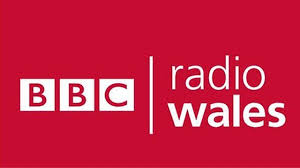

Mr Flynn added in his email: “Entertainment programmes now secure higher audience figures than news programmes.”
He wrote “… your position (is) completely untenable” and said “… you have brought in a number of B-list ‘celebrities’ to present programmes, but this has done nothing for the audience figures. You have stated that you were a highly-successful producer at Red Dragon and also at Radio Wales when the audience figures were much higher. You have failed to repeat this performance.”
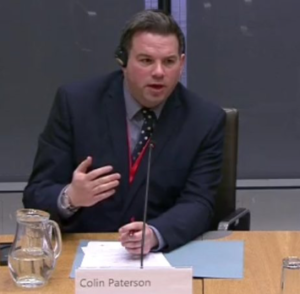
Mr Flynn pointed out the importance of the licence fee payer in the unfolding drama: “I should remind you that it is the public who pay your salary through the licence fee.”.
Meanwhile with Mr Davies at the helm, there has been a huge shake up in the line up at RW as Mr Paterson has struggled to combat the low audience figures. He has described the new line up as a “creative challenge” and the RAJARs have made the scale of the challenge clear, revealing that his station had an average weekly audience of just 317,000 listeners in one three month period.
Among the changes that were announced in a bid to stem the tide of disastrous listening statistics was a new breakfast programme hosted by different presenters on Monday to Thursday, to Fridays and Saturdays.
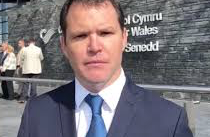
The Deputy Economy Minister in Wales Lee Waters MS has said publicly he is worried by what is happening and that there should be ‘serious’ and ‘challenging’ journalism, as well as objecting to the decision to drop the GMW programme.
Mr Waters (himself a former producer on GMW) said the changes meant there would be “no serious news programme” broadcast by BBC CW at breakfast time. His comments echo statements on Twitter when he has called for more ‘challenging’ journalism.
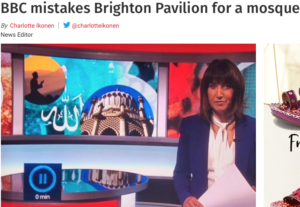 But BBC CW remains fully behind the controversial changes to the RW schedule, saying it was “committed to delivering news to the widest audience”.
But BBC CW remains fully behind the controversial changes to the RW schedule, saying it was “committed to delivering news to the widest audience”.
Yet delivering news has not always worked well. Programme-makers used a picture of Brighton Pavilion during coverage of the start of the hugely important Muslim month of Ramadan instead of a mosque, and the mistake was then featured in the Brighton Argus. One Twitter user complained: “BBC Wales showing a picture of the Brighton Pavilion and getting it confused for a mosque when talking about Ramadan is kind of f****d?”. Another wrote furiously: “Not happy they’ve used a shot of Brighton Pavilion as though it’s a mosque (presumably)”.
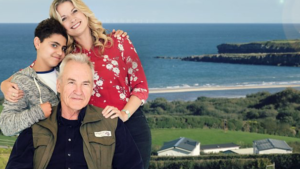
But it has been other programmes too which have drawn criticism. One called ‘Pitching In’, was described by viewers in the Western Mail as “unforgivable” and an “insult to Wales”. A reviewer said it was “so embarrassingly unfunny I felt my toes curling”. Some media executives do not believe the programme should ever have been allowed to go out.
There has also been a failure in the scrapping of popular existing programmes made by BBC CW. The TV debate series The Hour was axed after a year, and at an enormous cost to the licence fee-payer, following the controversial decision to close the 53 year-old award-winning Welsh TV Current Affairs programme Week In, Week Out (WIWO), which was presented by me for 10 years. Yet viewers had described The Hour on the internet, as “necessary” and even BBC CW officials had admitted to The Eye it “capture(d) the mood of the nation”.
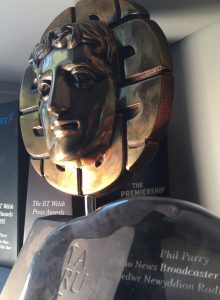
This came after the contentious resolution to get rid of WIWO despite the fact that it had won a clutch of awards, including at the Royal Television Society, BAFTA Cymru, and BT Wales. It even won an award after it had been formally closed. The programme had also been used as a springboard for Panorama episodes, and one of the journalists’ investigations still features near the top of an internal BBC CW document recording the highest viewing figures.
The neutrality, too though, of Mr Davies’ broadcaster has come under fire from senior politicians and others. The former leader of the Conservatives in the Senedd Cymru/Welsh Parliament (SC/WP), Andrew RT Davies, MS, accused, on social media, BBC CW of a “link” with Welsh nationalist party Plaid Cymru (PC) and that it was “unhealthy”. But in a highly unusual move, Mr Davies defended on Twitter a controversial decision to ask the PC leader on to a programme discussing major issues, saying the Welsh Conservatives had not accepted the invitation. Yet in another tweet Mr Davies said he stood by his original point.
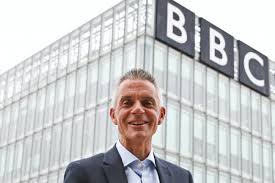
The unbelievable spat was soon after growing concern about figures who have joined the corporation from PC, and those that have moved in the other direction.
The astonishing delay in opening the new HQ for BBC CW in Cardiff’s Central Square (or “remarkable new home” as Mr Davies’ superior, the Director General Tim Davie described it) has also been attacked. It could cost the licence fee-payer hundreds of thousands of pounds in bills as officials ran the two buildings. This was at a time when staff costs and capital expenditure were under review right across the corporation, as well as with jobs going.
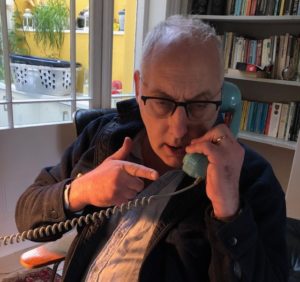
After the keys to the new building were formally handed over in April 2018, Mr Davies said: “Central Square is all about opening up… the fantastic location means that we’ll be more accessible”.
But he was not ‘accessible’ to me after I had worked at BBC CW for 23 years. I was told initially by the Press Office in a lengthy email exchange over more than six months, that Mr Davies would be available for interview. Question areas were provided, and the official was informed the interview could be conducted over the telephone. I was then instructed that an interview would not, in fact, be granted.

Meanwhile the liaison between Mr Davies’ executive Mr Paterson, and his high-profile presenter Mrs Owen, has provoked enormous disquiet, too, but among present BBC CW staff.
Apart from presenting BBC Wales Today, and in the past the RW programme, she also hosts the BBC One Wales (BBCW) consumer affairs programme ‘X-Ray’ with her husband, Rhodri, who it’s predicted she will split from. She has published a book which raises funds for the Noah’s Ark Charity for the Children’s Hospital of Wales called ‘Boo-a-bog In The Park’.

Mrs Owen has proclaimed: “The story is about how a little boy gets though a situation that is challenging for him with the help of an imaginary friend. But it’s all about finding any way through a difficult time or situation. It’s been a real family affair, with Rhod translating, and Gabs (eight year old son) came up with idea for Boo-a-bog fun and games at the end of the book. And the link to the charity as well makes it extra special for us. The theme of the story feels a good fit with the charity.”
 It should not be charity to provide transparency in an organisation funded by the taxpayer.
It should not be charity to provide transparency in an organisation funded by the taxpayer.
A senior politician has to try and make a new law to secure it!
Phil’s memories of his extraordinary decades-long award-winning career in journalism (including his years at The BBC) as he was gripped by the rare disabling neurological condition Hereditary Spastic Paraplegia (HSP), have been released in a major book ‘A GOOD STORY’ (which is very different to Mrs Owen’s book). Order the book now! The picture doubles as a cut-and-paste poster!








